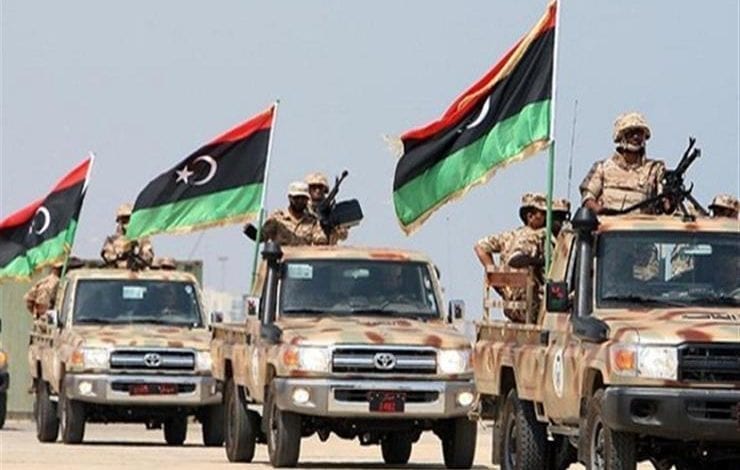In detail, a military official of the General Command of the Libyan Army announced that the army had reservations about a political way to resolve the Libyan crisis and that its results or agreements did not take into account the dismantling of armed militias and the expulsion of mercenaries and Turks from the country.
Maj. Gen. Khaled Al-Mahjoub, director of the moral guidance department at the Army General Command, said in a statement “the problem was not in the signing of agreements but in the implementation of their clauses, which indicates that there are several agreements the bases of which have been tampered with, including the Skhirat Agreement. Armed militias and their disarmament prevent stability, security and the building of institutions. They stress that the Libyan problem has increased today with foreign mercenaries and Turkish invaders, and conclude agreements to sell the homeland and endanger its sovereignty from military bases and seaports.
This came in response to the escalation of the political movement and discussions between the parties involved in the Libyan crisis to reach an agreement on the points of dispute between the Libyan factions in the west and east, during the dialogue sessions between the delegations of the Supreme State Council and the Libyan parliament in the Moroccan city of Bouznika to continue under extreme secrecy The results and discussions on differences in the division of sovereign positions and the geographical and institutional distribution of the regions of the country and a delegation affiliated to the government of the National Agreement came to Egypt to discuss a to submit new initiative.
It is noteworthy that while Libyan negotiations continue between members of the Libyan Parliament and the Supreme Council of State in Morocco, information reported that a delegation attended by Taj al-Din al-Razaki, a national security adviser to the head of the National Agreement government , Fayez al-Sarraj, is traveling to Egypt and taking an initiative for a solution. .
According to the information, Al-Razaki has taken an initiative that includes placing the Sada bridge line west of Sirte as a dividing line between the armed forces and introducing a ceasefire.
This initiative also includes freezing the expansion of political dialogue meetings in the current period, with a focus on holding elections in December 2021
under Arab, African and international oversight, accelerating economic negotiations and ensuring the oil revenue distribution mechanism the reopening of oil exports.
Military construction in the city
The strategic city of Sirte has long been a major obstacle to a ceasefire between the Ankara-backed Armed Forces of the Tripoli Agreement and the Libyan army led by Khalifa Haftar, with both sides claiming not to give up this coastal city.
While the United Nations has repeatedly warned of the continued military build-up of the two warring factions in the city, Turkey has stated more than once that leaving this city is a loss to the government of the National Agreement.
It is noteworthy that Sirte, the birthplace of the late Colonel Muammar Gaddafi and later the stronghold of the “ISIS” organization, has a strategic position between the east and the west in Libya and is now one of the main points of conflict between the parties in the country.
































